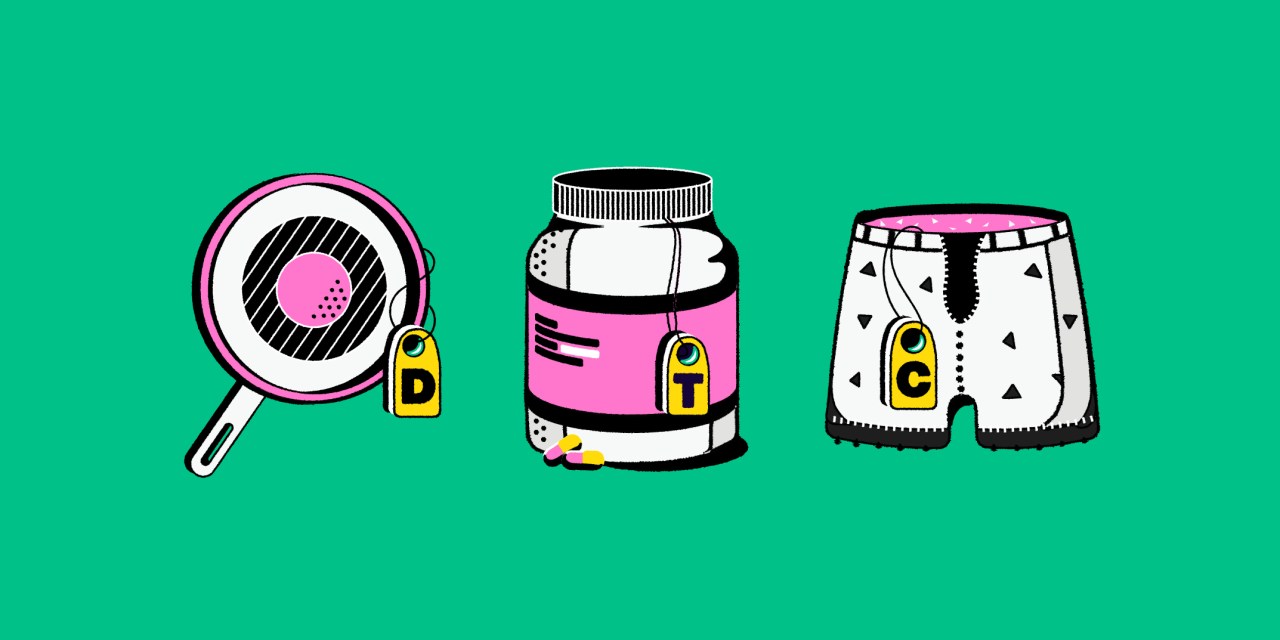DTC Briefing: Maveron’s Veronica Reaves-Parks on the consumer trends she’s watching in 2022

This is the latest installment of the DTC Briefing, a weekly Modern Retail+ column about the biggest challenges and trends facing the volatile direct-to-consumer startup world. More from the series →
This is the latest installment of the DTC Briefing, a weekly Modern Retail column about the biggest challenges and trends facing the volatile direct-to-consumer startup world. To receive it in your inbox every week, sign up here.
Maveron senior associate Veronica Reaves-Parks believes that the pandemic has led people to reevaluate where they spend their money — a trend that she believes will continue into 2022.
“People are evaluating every aspect of their lives and saying ‘does this make me happy’?” Reaves-Parks said, pointing to the Great Resignation as one example. “We want to spend our money on more meaningful things whether that is physical products or goods, or experiences.”
As a result, Reaves-Parks said that the consumer sectors and spaces that she is most excited to watch in 2022 are ones that she thinks consumers have started to express more interest in over the last two years. The pandemic has made consumers more eager to track their health in various ways, while a decline in in-person interactions has people craving community.
Reaves-Parks said that at Maveron, which has invested in consumer startups ranging from Allbirds to Co-Star to Parade, “we really look for products and services that meaningfully integrated into the life of the consumer,” and that “we really believe that consumer products and services have an opportunity to impact all of our lives.
Below are three of the consumer spaces Reaves-Parks said she is most excited to watch in 2022. Answers have been edited for clarity and length.
Consumer healthcare: Particularly for me what’s super exciting is hyper-individualized health care, through the use of wearables and companies that we have seen emerge over the last couple of years like Noom and Oura Ring. They are tackling different aspects of our health from a proactive perspective, so nutrition, exercise, sleep. What I have seen is that these companies, when they start, they will focus on one particular aspect of your health.
Ad position: web_incontent_pos1
But what excites me for next year is… when you have a nutritional coach, or you have a sleep coach, and the question really is: who is going to be the company and the platform that converges [all the data]?
There’s a company called Bioloop that is a sleep app that works with Oura ring, and they are expanding to other wearable platforms as well. But they want to be that platform that bridges [between different wearables]. I think [that] is super exciting, and gives power to the consumer.
Diverse founders getting more funding: I think we are seeing more and more diverse founders – women, LGBTQ, black and brown, Latino founders starting to get pre-seed and seed money. It’s not nearly where it should be. There’s obviously a massive gap….but what I am seeing happen, which is exciting, is that there are these products and services being built [specifically] for these populations that just [previously] had to deal with what they had.
One small thing on that front that I am seeing now, which is really cool, is we see some of these emerging brands — let’s say Telfar or Brandon Blackwood: handbag brands with Black designers. You see this crossover of ‘yes they are Black designer-led and owned, but the products and services are mainstream. I think, for a long time, when you [heard] the phrase ‘buy Black,’ to me I always thought why is it always ‘Black people buying Black? Everybody needs to buy Black. It has been fun to see this broader support and love for diverse-led brands. I think that will continue into 2022 as well.
Social tokens: I feel like I can’t talk about 2022 without talking about crypto – because we are all being bombarded with it at this point.
Ad position: web_incontent_pos2
I think social tokens have the opportunity to be super powerful, both for the creator and for the consumer. On the creator side, it enables creators to really own and manage, and earn revenues off of their art, which I think is very, very powerful. And the ability to scale that is so much much bigger than what we have ever had before.
Essentially it rewards early adoption — and then the artist and the consumer they can figure out what, ‘well what does that mean’? Does that mean you get early access to X, Y, Z or what not? Even brands are thinking about this. Brands are thinking about: how can we leverage social tokens to get to know our evangelist customers better, to reward them for their support?
What I’m reading
- Bloomberg has a deeply reported profile of Shopify founder Tobi Lütke. It chronicles both how the company navigated the pandemic, as well as its strategic moves over the last 15 years to quietly compete with Amazon.
- Retail Brew spoke with clothing brand Draper James about its two newest store openings — both in highly-trafficked malls.
- Sweetgreen is taking a page out of the DTC playbook. The fast casual lunch chain is launching a subscription that, for a $10 monthly fee, gives members a daily $3 discount.
What we’ve covered
- Livestream shopping is the next major battleground for platforms. We looked into how a group of startups are preparing to go to battle with the social behemoths.
- Abercrombie is not the mall brand it once was. Here’s our profile on how the retailer has modernized its offerings and image.
- Think you know what all the latest retail buzzwords mean? If not, we wrote a glossary to define all the terms you’ve been too lazy to Google.

